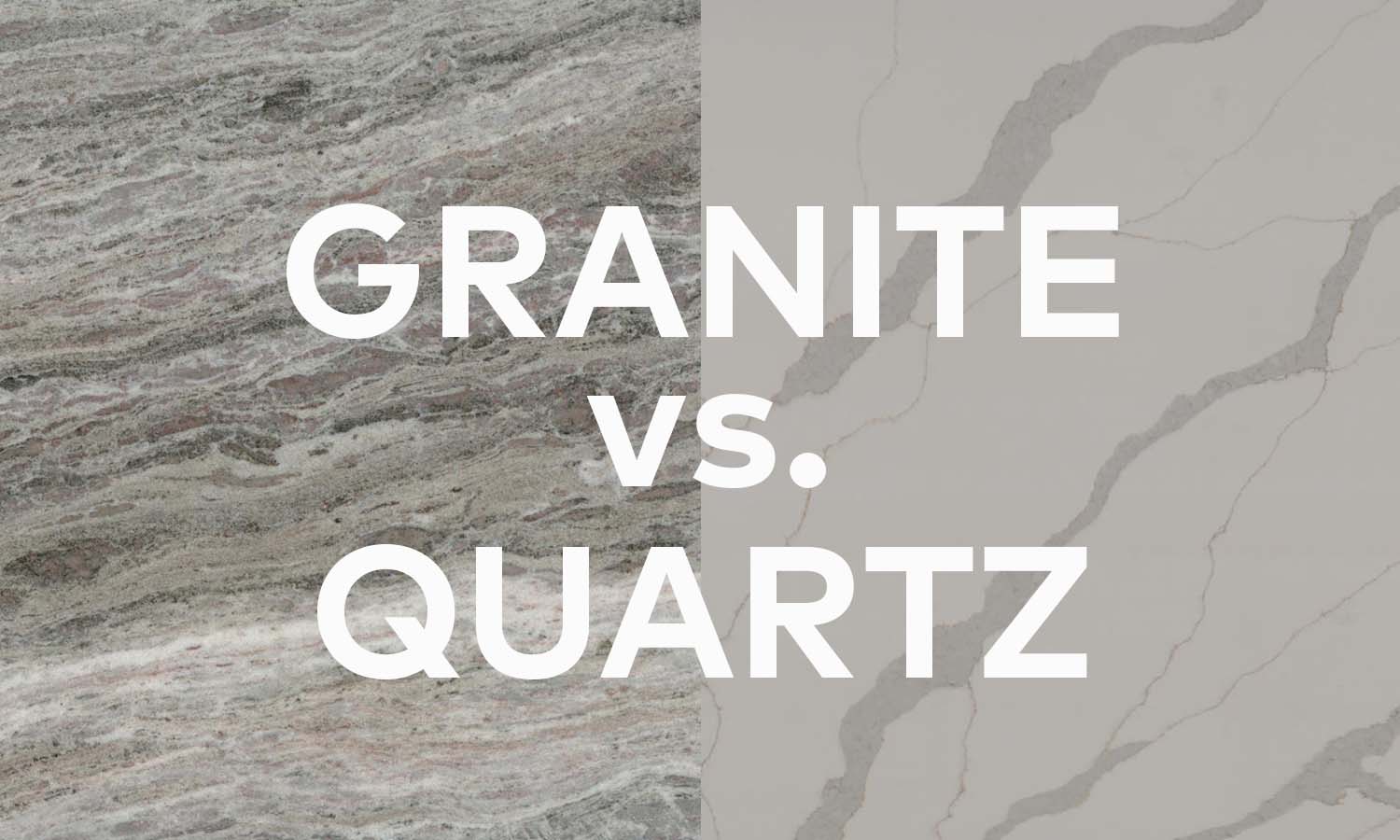When it comes to choosing the perfect countertop material for your kitchen or bathroom, the options can be overwhelming. Two popular choices that often steal the spotlight are quartz and granite. Both have their unique characteristics, advantages, and drawbacks, making the decision a critical one for your home improvement project. In this blog, we'll delve into the differences between quartz and granite to help you make an informed choice.
1. Composition:
- Granite: Granite is a natural stone, primarily composed of quartz, feldspar, mica, and various minerals. It's mined from quarries and cut into slabs, resulting in a distinctive, one-of-a-kind appearance with natural variations in color and pattern.
- Quartz: Quartz countertops are engineered stone surfaces made by combining 90-95% crushed natural quartz crystals with resins, polymers, and pigments. This manufacturing process allows for a more consistent appearance, as the color and pattern can be controlled.
2. Appearance:
- Granite: Granite countertops showcase a unique and organic look with intricate patterns and natural imperfections. They come in a wide range of colors and are admired for their natural beauty.
- Quartz: Quartz countertops offer a more uniform and consistent appearance. They are available in various colors and patterns, including options that mimic the look of natural stone, concrete, or even solid colors.
3. Durability:
- Granite: Granite is a durable and heat-resistant material, making it ideal for kitchen countertops. It can withstand high temperatures and is resistant to scratches and stains, but it may require periodic sealing to maintain its integrity.
- Quartz: Quartz countertops are highly durable and resistant to scratches and stains. They do not require sealing and are particularly well-suited for high-traffic areas. However, they are not as heat-resistant as granite, so the use of trivets is recommended to avoid damage.
4. Maintenance:
- Granite: Granite countertops require periodic sealing to prevent staining, as it is a porous natural stone. Routine cleaning with a mild detergent and warm water is usually sufficient.
- Quartz: Quartz countertops are non-porous and do not require sealing. They are relatively low-maintenance and can be easily cleaned with a mild soap and water.
5. Cost:
- Granite: The cost of granite countertops can vary widely based on factors like color, rarity, and origin. While it can be affordable, some exotic granite options can be quite expensive.
- Quartz: Quartz countertops generally have a more predictable and consistent price range, making budgeting easier. While it may be more costly than some basic granite options, it can be more cost-effective in the long run due to lower maintenance requirements.
6. Eco-Friendliness:
- Granite: Granite is a natural resource that requires quarrying, which can have an environmental impact. However, some quarries practice responsible and sustainable extraction.
- Quartz: The manufacturing of quartz countertops consumes energy and resources, but many manufacturers are working on reducing their environmental footprint and using recycled materials.
7. Customization:
- Granite: Each granite slab is unique, and the final appearance is somewhat unpredictable. This can be a drawback if you have a specific design in mind.
- Quartz: Quartz countertops allow for more design predictability due to their engineered nature. You can select the color and pattern that suits your design preferences.
In conclusion, the choice between quartz and granite countertops ultimately comes down to your personal preferences, budget, and specific needs. While granite offers a natural and unique look, quartz provides consistency and lower maintenance. Consider the factors that matter most to you and your lifestyle when making this important decision for your home. Both materials can be excellent choices, and you can't go wrong with either as long as they align with your expectations and requirements.
The countertop professionals at Distinctive Kitchen can provide more detailed information about the specific materials you're considering. Give us a call, visit our showroom, or view our current inventory from the comfort of your home.


